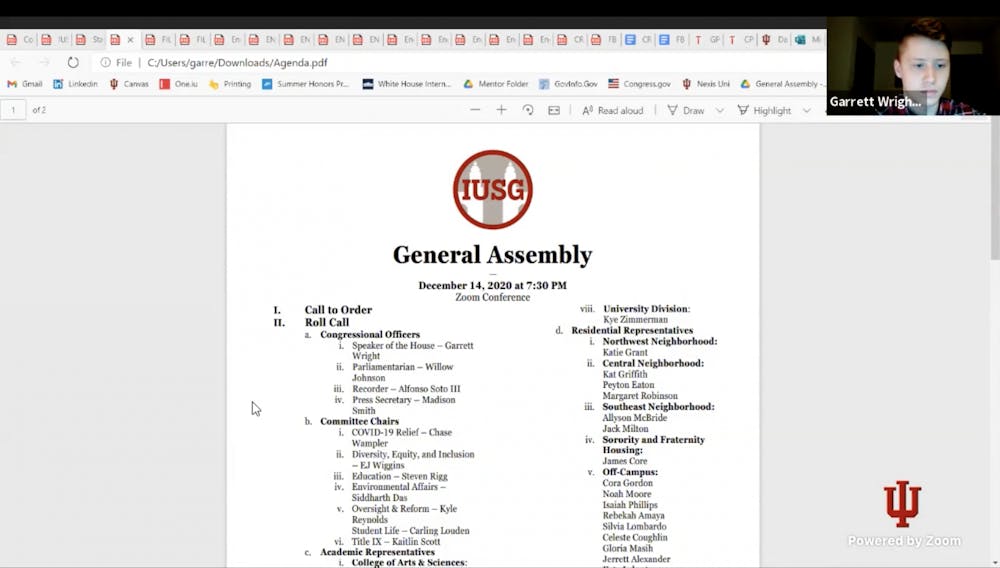After a heated debate at the final meeting of the semester, IU Student Government Congress approved a constitutional measure to add a minimum of 31 seats in the body of Congress for different multicultural groups.
The bill passed IUSG Congress 41-5. Garrett Wright, speaker of IUSG Congress, abstained from voting.
Multicultural groups on campus must petition to send a representative to IUSG Congress, and each student may be elected or appointed by that organization. The remainder of Congress’ seats will remain as the traditional academic and residential seats. In other words, the new multicultural seats will not be elected by a school or housing bloc, but rather appointed or elected by a multicultural organization on campus.
The bill did not receive much opposition during the debate period, but IUSG congress member Kyle Reynolds shared his concerns during the meeting.
“My concern is that it puts no hard limit on the amount of organizations that could gain seats,” Reynolds said. “Under this bill, I think it would be realistic that we could have one hundred student organizations with a seat in Congress, which would far outnumber the scholastic seats. To me, that’s very concerning. At that point, Congress is no longer a representative body.”
Supporters of the bill spoke for the vast majority of the time during the debate period, pushing the consideration on the legislation to more than an hour. The bill was endorsed by dozens of student leaders on campus.
“This bill codifies a solution to a problem we’ve seen presently and historically,” Ky Freeman, president of IU’s Black Student Union, said at the meeting. “That is the suppression of core racial and ethno-religious and progressive student identities.”
This constitutional resolution was supported by the Rainbow Coalition, a group of multicultural groups on campus. The authors included congressional members Rebekah Amaya and Brian Hancock, as well as Lindsey Batteast, a member of the public.
Bills of this nature have been proposed in the IUSG Congress before, including at least twice since 2009. The most recent attempt was this past summer, but that bill failed to gain traction. This time, however, supporters of the bill turned up in big numbers in support of the resolution.
“IUSG has consistently tried to implement this proposal,” Hancock said. “It has been consistently struck down by Congress. We have a great opportunity to do a lot of good. This bill opens the door for representation.”
Hancock said in his comments Monday that this is the first time they’ve seen such a strong show of support from the student body. Attached to the bill was a petition that garnered hundreds of signatures.
Almost 100 people signed into the Zoom meeting to watch the proceedings, which was held during finals week. Hancock reacted to that on his Twitter account.
“Maybe this moment is a little bigger than we thought,” he said on Twitter.
While the passage of this constitutional resolution marks a vital step, it does not guarantee that it will go into effect next year. It first must be ratified by a majority of the student body in either the next election or a special referendum. That special referendum is currently set for Jan. 22, 2021, according to the resolution.
Should this constitutional amendment be ratified, multicultural groups could see defined seats in Congress starting in fall 2021.
Correction: A previous version of this article misspelled Lindsey Batteast's name. The IDS regrets this error.




